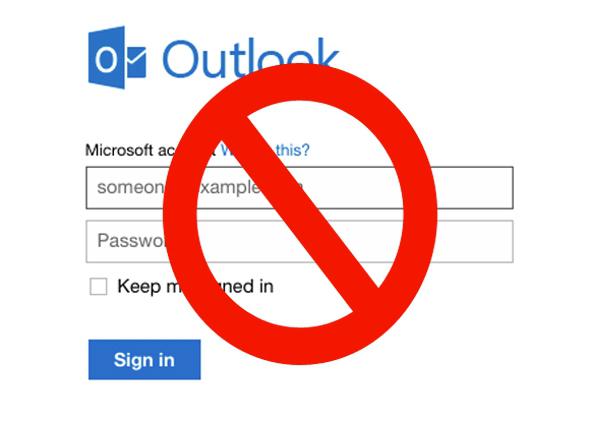This article originally appeared in Inside Higher Ed.
A Salem College faculty member last semester took an uncompromising approach to curbing syllabus and inbox bloat: Why not ban most student emails?
“For years, student emails have been an assault on professors, sometimes with inappropriate informality, sometimes just simply not understanding that professors should not have to respond immediately,” Spring-Serenity Duvall, assistant professor of communications at Salem College, wrote in a blog post last week. “In a fit of self-preservation, I decided: no more. This is where I make my stand!”
Duvall’s frustration is shared by many in academe—or anyone with an email account—from faculty members beset by questions they have answered both in class and in writing to students inundated by university email blasts. This spring, when Duvall taught at the University of South Carolina–Aiken, she adopted a new email policy to cut down on emails from students telling her they would be late, or would miss class, or would have to leave early, or any of the countless others that could be handled face to face.
Instead of wasting class time on walking her students through an increasingly complicated flowchart diagram of when they could and could not email her, Duvall stopped the problem at its core: no emails—unless you’re scheduling an in-person meeting.
“I suffer from syllabus creep as bad as the next teacher—where the syllabus just gets longer and longer and you try to account for everything—and I was laboring over the section on email policy, because that section of my syllabi for all my classes had just ballooned.” Duvall said in an interview. “What I realized, in my frustration, is what I was really trying to tell them is ‘don’t email me.’ ”
The policy (seen below) was not meant to make her less accessible to students in her senior-level gender and media studies course, nor did it come from an “antiquated, anti-new-media perspective,” Duvall said. Its purpose was twofold: teaching students to be more self-reliant by making them read assignments and the syllabus more closely, and freeing up time for conversations in the classroom and during office hours.
E-mail: You should only use email as a tool to set up a one-on-one meeting with me if office hours conflict with your schedule. Use the subject line “Meeting request.” Your message should include at least two times when you would like to meet and a brief (one-two sentence) description of the reason for the meeting. Emails sent for any other reason will not be considered or acknowledged. I strongly encourage you to ask questions about the syllabus and assignments during class time. For more in-depth discussions (such as guidance on assignments) please plan to meet in person or call my office. Our conversations should take place in person or over the phone rather than via email, thus allowing us to get to know each other better and fostering a more collegial learning atmosphere.
“I did think ‘this is ridiculous—I’ll never get away with it,’ ” Duvall said. But with approval from her department head—and a promise to herself that she could always scrap the policy halfway through the semester—she piloted it.
This is not the first policy battle Duvall has fought. Years ago she tried to take a stand against smartphones, tablets, and laptops in the classroom, but settled for a compromise that allowed such devices to be used as long as they didn’t distract anyone else. The difference between that policy and her sticking with the email ban, however, is that the former may have been more “antagonistic” in nature.
“The more I talk to people about this, the more I find myself thinking that this whole teaching endeavor is not a zero-sum game,” Duvall said. “I think it’s important for any policy that it be the best thing for that class and those students and even the professor, and not [used] haphazardly.”
After one semester, Duvall said, the email policy has been an “unqualified success.” She reported spending less time filtering through “hundreds of brief, inconsequential emails,” and noticed that students came to class better prepared and wrote better papers. She allowed one exception to the rule—students emailing her content relevant to the course. During her decade-long career as a college instructor, Duvall said, she has never received more phone calls and more student visits during her office hours.
Students, in turn, gave the course better evaluations than previous cohorts, and rated Duvall’s concern for their progress and efforts to make herself accessible as “excellent.” Only one student out of 48 had something to say about the email policy—a quibble about not being able to ask simple yes-no questions—but even that student endorsed Duvall’s preference for in-person meetings.
“There was a little part of me that was afraid that maybe they were keeping their thoughts to themselves, and they would slam me on the evaluations on how much they hated the policy,” Duvall said.
Now at Salem, a small women’s college in North Carolina, Duvall said her policy will likely be an even better fit. This semester, which started this week, students in all her classes—from the sophomores and juniors in her gender and new media course to the freshmen in Public Speaking 101—will have to adapt to the policy.
“This is really not as radical as it felt or as people think it is,” Duvall said. “We all try things with our teaching and then learn from that. I’m always re-evaluating and updating, and if it fails miserably here, I’ll rethink it next time. But for now, I’ll try it.”
